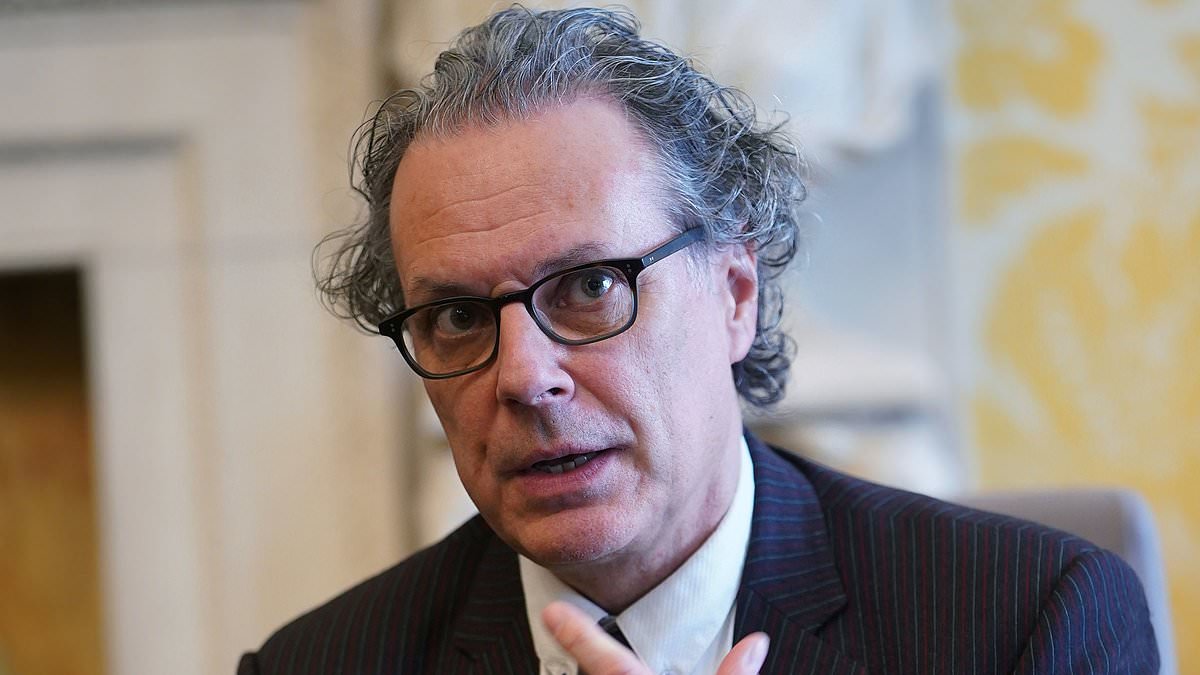The father of tragic Molly Russell has accused major social media platforms of continuing to ‘sit on their hand and choose inaction’ over protecting youngsters from dangerous content.
Ian Russell spoke out after a new study showed that some of the biggest platforms are failing to detect and remove material relating to suicide and self-harm.
Research from the Molly Rose Foundation found that of more than 12 million content moderation decisions made by six of the biggest platforms, over 95 per cent were detected and removed by only two sites – Pinterest and TikTok.
The charity said Meta’s Instagram and Facebook were each responsible for just 1 per cent of all suicide and self-harm content detected by the major sites studied – and X, formerly known as Twitter, is responsible for just one in 700 content decisions.
The study analysed publicly available records of over 12 million content moderation decisions taken by six sites: Facebook, Instagram, Pinterest, Snapchat, TikTok and X, and said it found the response of most platforms to suicide and self-harm content was ‘inconsistent, uneven and unfit for purpose’.
The Foundation is now warning that the Online Safety Act does not go far enough to address what it says are clear systematic failures in the content moderation approach of social media firms.
The charity – whoch is chaired by Mr Russell – was set up in Molly’s memory as part of a drive to stop youngsters from resorting to suicide.
Molly, who was 14 when she took her own life in November 2017, viewed more than 2,000 online posts about suicide, self-harm and depression during the last six months of her life.
Mr Russell said: ‘Almost seven years after Molly died, it’s shocking to see most major tech companies continue to sit on their hands and choose inaction over saving young lives.
‘As the last few weeks have shown, it’s abundantly clever that much more ambitious regulation is required.
‘That’s why it’s time for the new Government to finish the job and commit to a strengthened Online Safety Act.
‘Parents across the country will be rightly appalled that the likes of Instagram and Facebook promise warm words but continue to expose children to inherently preventable harm.
‘No ifs, no buts, it’s clear that assertive action is required.’
In comments to the Mirror, he added: ‘Over the years we’ve grown used to hearing platforms say, ‘We take this very seriously? the safety of our users is paramount’.
‘That sounds comforting, but there’s no real evidence anything has really changed.’
In its report, the Foundation said it had found that social media sites were routinely failing to detect harmful content on the highest risk parts of its services.
For example, it said only one in 50 suicide and self-harm posts detected by Instagram were videos, despite the short-form video feature Reels now accounting for half of all time spent on the app.
The study also accused sites of failing to enforce their own rules, noting that while TikTok detected almost three million items of suicide and self-harm content, it suspended only two accounts.
The research was based on content moderation decisions made in the EU, which are required to be made publicly accessible.
In response to the study, a Meta spokesperson said: ‘Content that encourages suicide and self-injury breaks our rules.
‘We don’t believe the statistics in this report reflect our efforts. In the last year alone, we removed 50.6m pieces of this kind of content on Facebook and Instagram globally, and 99% was actioned before it was reported to us.
‘However, in the EU we aren’t currently able to deploy all of our measures that run in the UK and the rest of the world.’
A spokesperson for Snapchat said: ‘The safety and wellbeing of our community is a top priority.
‘We strictly prohibit content that promote or encourage self-harm or suicide, and if we identify this, or it is reported to us, we remove it swiftly and take appropriate action.’
TikTok did not provide a statement but said its rules were clear that it did not allow showing, promoting or sharing plans for suicide or self-harm.
A Department for Science, Innovation and Technology spokesperson said: ‘Social media companies have a clear responsibility to keep the people using their platforms safe and their processes to do so must be effective.
‘Under the Online Safety Act, those who encourage self-harm with intent currently face up to five years in prison. Once the Act is fully implemented platforms will also have to proactively remove illegal content that encourages serious self-harm and stop children seeing material promoting self-harm or suicide, even when it falls below the criminal threshold.
‘We want to get these new protections in place as soon as possible, but companies should not wait for laws to come into force – they must take effective action to protect all users now.’
